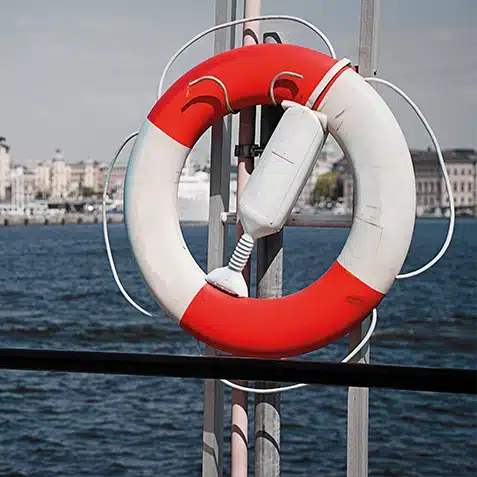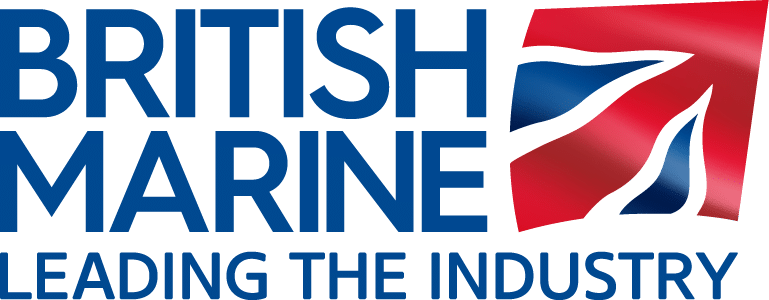Health & Safety in Ship Operations Course
Diploma in Health & Safety in Ship Operations
Health & Safety Operations
Maritime Training Academy’s internationally-recognised Onboard Health and Safety Diploma equips onboard safety professionals with the knowledge and practical skills required to manage vessel safety, implement risk controls and maintain compliance with international shipping regulations.
Our advanced Maritime Safety Training course covers the full operational framework of onboard safety. including the SOLAS Convention, the ISM Code, and ship-specific Safety Management Systems (SMS). This training is designed for officers, superintendents, compliance personnel and shoreside teams responsible for maintaining safe and legally compliant vessel operations.

Professional Maritime Health & Safety Qualification
Develop the confidence and technical capability to lead shipboard safety systems, conduct risk assessments and manage compliance audits across a wide range of vessel types.
Contact us below to enrol today, or speak with our experienced course advisors.

Duration:
12 - 18 months
Learn at your own pace
Online Course:
Study from anywhere

Cost:
Diploma: £3,195
Certificate: £2,295

Recognised by: 
Health & Safety in Ship Operation Diploma vs Certification
Choose the right path for your career:
Comprehensive Training: SOLAS and ISM Code regulations, SMS implementation, onboard risk assessments, safety documentation, drills and emergency response, audit preparation and ISM officer training.
Flexible Study Duration: 12 – 18 month depending when you enrol to the program, study online at your own pace, from anywhere in the world.
Marine Industry Career Opportunities: 100% Online, with access to our student learning portal
Long-Term Career Impact: Ship Safety Officer, Vessel Compliance Assistant, Marine Superintendent, Port Safety Lead, ISM Officer, Marine Risk Coordinator.
Global Recognition: Our Diplomas are recognised by the University of Portsmouth and are supported by industry associations.
Assignments: One assignment is required to be completed and submitted at the end of each module, based on that particular subject.
Certification: you will receive a PDF Digital certificate (Printed Certificate Completion Pack available).
Final Examination: There will be a final examination upon completing and submitting all student assignments (exams are sat in April or October).
Post-Nominal letters: On passing the Diploma you can also use these letters after your name: MTA Dip H&S.
Digital Course Badge: Upon successful completion students will receive an exclusive course badge for use on business cards, LinkedIn profiles and website(s)!
Diploma - £3,195
A recognised qualification for those working in vessel operations, safety compliance or shipboard management. Includes tutor support, formal assessments and international certification.
✔
✔
✔
✔
✔
✔
✔
✔
✔
✔
Certificate - £2,295
Training-only format for learners who do not require assessment. Suitable for crew members, technical staff or support personnel working under a safety officer or compliance role.
✔
✔
✔
✔
✔
✔
Health & Safety in Ship Operations curriculum: 11 Modules
This course provides in-depth instruction in the management of health and safety systems across the maritime sector. Modules explore the construction and auditing of Safety Management Systems (SMS), procedures for conducting onboard risk assessments, and protocols for emergency response and crew training.
You’ll also study how to interpret and apply requirements under SOLAS, manage ISM Code documentation, and fulfil duties associated with ISM officer training, with practical insight into real-world maritime safety compliance.
1. Introduction to Health and Safety in Ship Operations
- What is health and safety?
- Why health and safety?
- UK general health and safety legislation
- The code of safe working practices for merchant seamen
- Occupational health and safety at sea
- UK health and safety organisations
- International framework for health and safety
- Accidents and incidents – the statistics
- International health and safety statistics
2. Duties and Obligations to Oneself and Others
- Introduction
- Employer’s duties
- UK health and safety law
- Obligations to others
- COLREGS
- Understanding accident causation
3. Risk Assessment
- Introduction
- What is risk assessment
- Five steps to risk assessment
- Task specific hazards, risks and control measures
4. ersonal Protective Equipment (PPE)
- Introduction
- Definition of PPE
- Provision and Use of PPE
- Assessing Suitable PPE
- Types of PPE
- Training
- Maintenance
- Other Regulations
5. Specific High Risk Activities
- Introduction
- Definition of a confined space
- Entry into a Enclosed Spaces
- What are the problems?
- Oxygen depleting cargoes
- Managing the risks
- Emergency Rescue
- Working at height
- Safety Harness’s and Fall Arrest Systems
- Working on electrical/mechanical systems
6. Slips, Trips and Falls
- Introduction
- Introduction/statutory framework
- Trips & slips
- Trips & slips – a passenger’s perspective
7. Reporting of Accidents and Incidents
- Introduction
- Accident reporting, what & why?
- Merchant Shipping (Accident Reporting & Investigation) Regulations 2012 (“The Regulations”)
- Reporting of Injuries, Diseases and Dangerous Occurrences Regulations 2013 [RIDDOR]
8. Port Operations
- Introduction
- Safe operations on quaysides and ships decks
- Health Hazards
- Dusty Cargo’s
- Musculoskeletal Disorders
- Manual Handling Operations Regulations 1992
9. The Law of Health and Safety
- What is Health and Safety?
- Health and Safety legislation
- The Health and Safety Executive (Hse)
- Enforcement of Health and Safety legislation
- Health and Safety in ports
- Health and Safety on ships
10. Classic Accidents, Accident Causation and Analysis
- Introduction
- Classic accidents, accident causation and analysis
- The S.S Titanic
- The S.S Torrey Canyon
- The Herald of Free Enterprise
- The Derbyshire
- The Exxon Valdez
- The Braer
- The Costa Concordia
- The Sea Empress
11. The Human Element
- Introduction
- The Human Mind
- Taking Risks
- Making Decisions
- Making Mistakes
- Tiredness and Stress
- Working with others
- Communicating with people
Hear from our Students
Meet the Course Director
Dr. Jonathan Hadley-Piggin
BSc (Hons), MA, Dprof, Dip Law, MNI, Solicitor
Jonathan Hadley-Piggin is a solicitor and Partner in the marine and shipping department at Keystone Law a commercial law firm based in London. Jonathan attended Warsash Nautical College in Southampton sponsored by BP Shipping, where he gained a Class III Certificate of Competency (Deck Officer).
Following time at sea with BP (including during the Iran/Iraq war) he later gained a commission in the Royal Navy and attended Britannia Royal Navy College, then, sponsored by the Navy read for a degree in Maritime Law and Economics at Cardiff University.
He then served in a variety of surface ships before specialising in navigation in nuclear submarines. He left the Navy to study law where he later qualified at Stephenson Harwood in London, working primarily on salvage and collision case.

Health and Safety in Ship Operations Course FAQs
Find out more about the course with our FAQs below.
How do I start a career in maritime health & safety?
Begin with a recognised training course in maritime safety procedures such as this one by the MTA. Our diploma helps build the skills needed to work in onboard compliance, operations support or marine safety coordination.
How much do marine safety professionals earn?
Roles in shipboard safety and marine compliance typically pay £30,000 to £55,000 depending on experience, vessel type and jurisdiction.
What qualification will I receive?
You’ll receive a Diploma in Health and Safety in Ship Operations from the Maritime Training Academy recognised internationally by operators and marine safety teams.
Does this course cover international maritime regulations?
Absolutely, the course includes in-depth training on SOLAS requirements, ISM Code implementation and Safety Management System development.
Is this suitable for crew members or operations staff?
Our course is ideal for existing seafarers, junior officers, superintendents or any marine professional involved in onboard safety systems or compliance.
Can I study this safety course online?
Indeed it does this course is delivered fully online with tutor support and flexible study options from anywhere in the world.
See our FAQ page for more questions answered about MTA courses.
Supported by:


Why Choose The Maritime Training Academy?

Flexible
Online learning allows you to study in your own time, at your own pace from anywhere in the world. This saves on travel and classroom costs and allows you to fit your studies around your job and progress your career.

Supportive
While the nature of distance learning is independent study, we recognise the importance of support. Students can contact us at any time during their course for assistance and our team of industry experts are always on hand for advice.

Expertise
We have over 50 industry experts writing, developing and advising on our course material. We truly believe that allowing students to tap into their expertise and knowledge is of the utmost importance to fulfil your dream career.
If you would prefer to complete this as a classroom-based course, please contact us.
